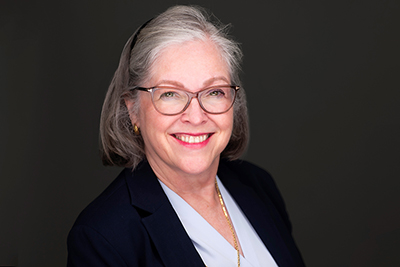
Coordinating Care: Maxine’s Story
Coordinating Care: Maxine's story
Dance instructor was able to continue working despite a cancer diagnosis, thanks to coordination by her health care team
Published March 25, 2024
For nearly 50 years, Maxine Silberstein, 78, has dedicated her life to dance and continues to be a fixture of the Houston, Texas performing arts community.
After Silberstein’s chronic leukemia diagnosis — and developing transverse myelitis (inflammation of the spinal cord) — this could have all changed. “I could barely work and being a dancer and being a movement person, I was devastated,” she recalled.
Silberstein credits the ongoing medical care and support from her treatment team for being able to continue serving as a dance director and instructor at the Evelyn Rubenstein Jewish Community Center of Houston.
Silberstein is a patient at Texas Oncology, which is participating in the Enhancing Oncology Model (EOM) a value-based oncology pilot program led by the Center for Medicare and Medicaid Innovation at CMS. EOM aims to improve coordination across all a cancer patient’s health care providers and supports personalized services that help the patient navigate and manage their cancer care. Texas Oncology was also part of EOM’s predecessor pilot program, the Oncology Care Model, which ran from 2016 to 2022.
“Our practice benefits from providing high-quality, cost-effective care,” said Dr. Susan Escudier, Vice President, Value-based Care and Quality Programs for Texas Oncology.

Dr. Escudier said an essential part of EOM is improving the patient experience and treating the whole person. Providers in EOM are responsible for taking into consideration their patients’ preferences and goals for treatment, health-related social needs, such as housing and transportation assistance, as well as psychosocial health needs.
Often, patients diagnosed with cancer can feel overwhelmed trying to manage their care. They may be responsible for relaying information between their cancer specialists and their primary care doctor, and may be unclear or uncertain on how to manage side effects of treatment. Among the key goals for EOM is for patients to:
- feel like they are better supported in their care;
- have a clearer understanding of their diagnosis, prognosis and expected outcomes; and
- be able to adhere to their treatment plan which they develop in partnership with their cancer specialist.
With these goals in mind, patients at Texas Oncology, for instance, can benefit from access to nurse navigators.
Silberstein said she appreciated that her care team at Texas Oncology worked together with her neurologist so she could undergo treatment for both her cancer and transverse myelitis concurrently, and she was able to return to dance.
"I felt like I got excellent attention and treatment," Silberstein said.
Silberstein is now in remission but receives regular monitoring and infusions to keep her healthy.
“CLL of course is a kind of leukemia that can return, you are constantly being monitored and checked,” she said. Dr. Escudier has “given the attention and care that I needed. And I feel like she’s always looking after to make sure that I am up to date on testing on anything I need to have done to keep me in good health.”
Along with keeping up with her wide variety of dance classes – from ballet, tap to modern and jazz, Silberstein has been able to take up other hobbies to give her purpose, including occasional work with Meals on Wheels — “just finding things that I really want to do now.”